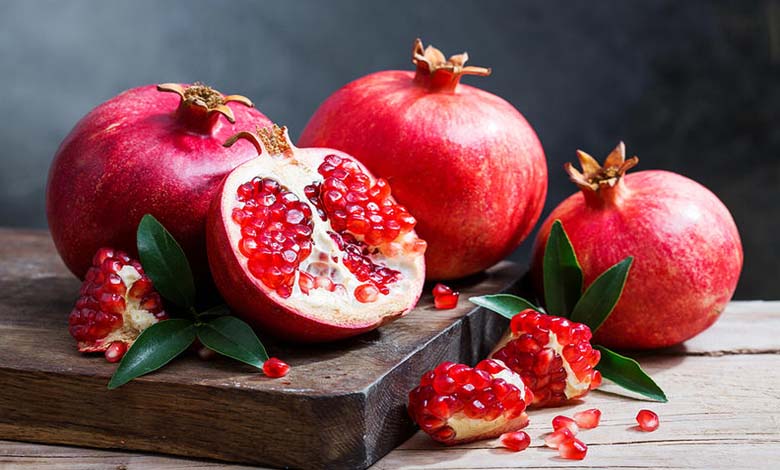Pomegranate: The Fruit of Kings and the Secret to Health from Seed to Peel

Revered since antiquity as a symbol of fertility, prosperity, and longevity, the pomegranate (Punica granatum) is far more than a vibrant fruit bursting with ruby-red arils. Native to the Mediterranean basin and the Middle East, this fruit—often referred to as “the jewel of winter”—was treasured by ancient civilizations, from Egyptian pharaohs to Persian emperors. Today, modern science validates what traditional medicine has long claimed: the pomegranate is a powerhouse of health benefits—from its seeds to its peel.
-
Can Pomegranate Protect You from the Risks of Sports Supplements?
-
Drinking Pomegranate Juice Daily: A Natural Ally for Heart Health and Blood Pressure Regulation
A powerhouse of potent antioxidants
Pomegranate juice ranks among the richest natural sources of antioxidants, surpassing even green tea and red wine. Compounds such as punicalagins and anthocyanins help combat oxidative stress, slow cellular aging, and lower the risk of chronic diseases by neutralizing free radicals.
Cardiovascular protection
Numerous clinical studies have demonstrated pomegranate’s positive effects on heart health. Regular consumption helps reduce blood pressure, improve blood circulation, lower LDL cholesterol, and prevent atherosclerosis. These heart-protective effects are mainly attributed to its polyphenol content, which supports vascular flexibility.
-
How to store pomegranates to enjoy them longer without spoiling
-
What Happens to Blood Sugar Levels When You Eat Mango Daily?
Digestive and anti-inflammatory properties
Often overlooked, the pomegranate peel contains tannins and phenolic compounds with antimicrobial and anti-inflammatory properties. Herbal infusions made from dried peels are used in natural medicine to treat diarrhea, gastrointestinal disorders, and certain bacterial infections.
Promising anticancer potential
Recent research highlights the potential of pomegranate in cancer prevention, particularly for prostate, breast, and colon cancers. Its bioactive compounds inhibit tumor growth and promote apoptosis (programmed cell death) in cancerous cells, offering promising avenues for complementary therapies.
-
It improves digestion – 7 benefits of star anise tea
-
4 Types of Gut Bacteria Linked to Living Up to 100 Years
Fertility and hormonal balance
In traditional medicine, pomegranate has long been associated with enhanced fertility in both men and women. Its antioxidants and vital nutrients—like vitamin C and folic acid—support hormone production, improve sperm quality, and regulate menstrual cycles.
Natural skincare and cosmetic benefits
Pomegranate seed oil, rich in punicic acid, is highly valued in natural skincare for its regenerative properties. It promotes skin elasticity, reduces the appearance of wrinkles, and shields against environmental stressors. Even the peel is used in purifying face masks thanks to its astringent effects.
-
Dried Nuts that Naturally Lower Uric Acid
-
Health: here are the advantages of these fruits on our body!
How to add pomegranate to your diet
Pomegranate can be enjoyed in a variety of forms: as fresh juice, sprinkled over salads, incorporated into desserts, or simply eaten by spooning out the arils. Dried peel infusions, pomegranate powder, and dietary supplements also offer year-round ways to benefit from this fruit’s healing potential.
From seed to peel, the pomegranate is a nutritional gem with diverse medicinal applications. In an era where natural health and preventive care are gaining traction, this “fruit of kings” rightfully earns its place on the modern table—for both wellness and taste.












